Face to face with a mercenary: Inside Wagner and its blood-soaked role in Russia’s invasion of Ukraine
Kim Sengupta meets a fighter – a father of two – who has recently left the mercenary group and hears about the daily routine of ‘fight, eat, pray’ on some of the fiercest frontlines in the war

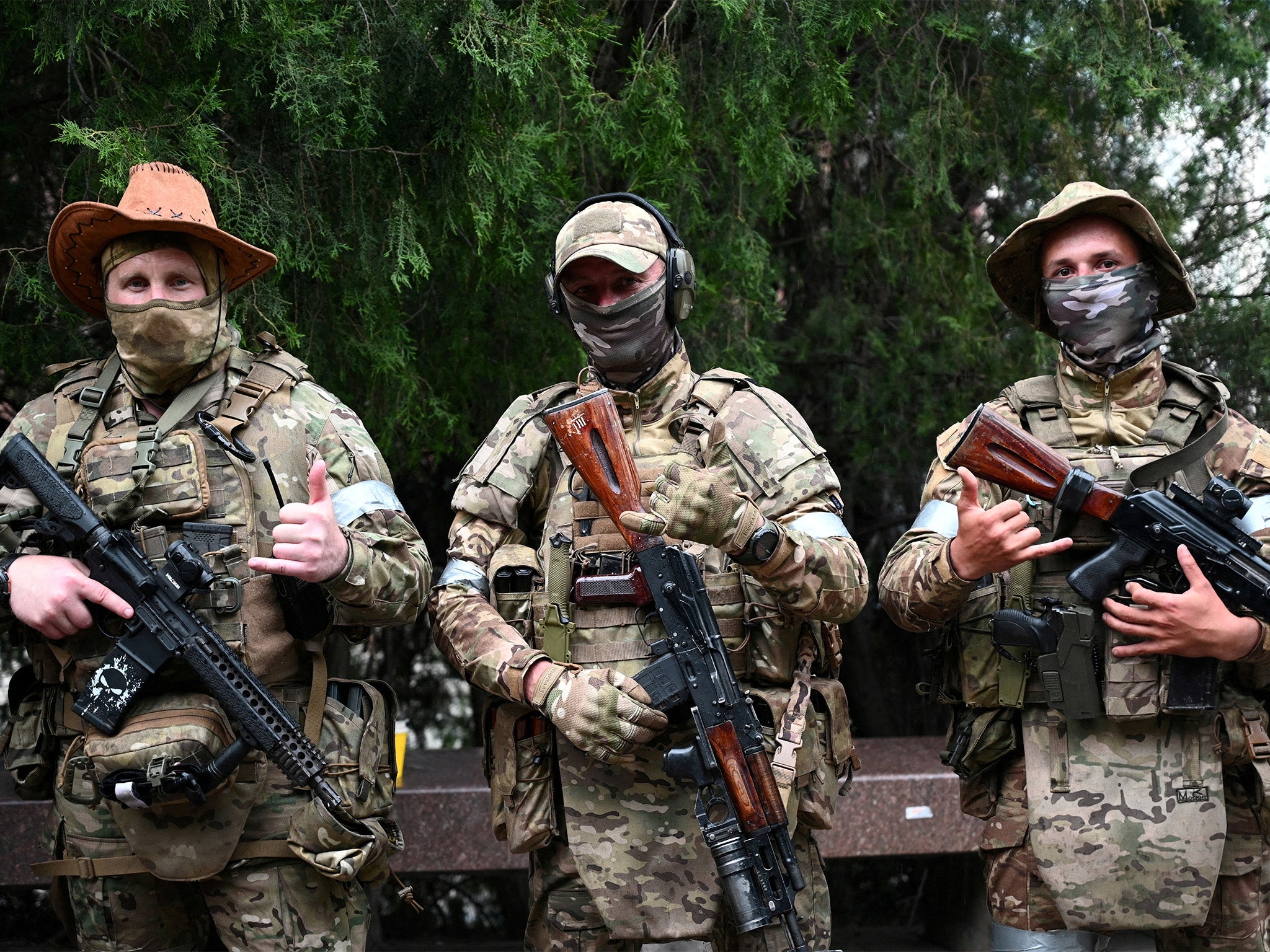
Amid the ravages of war, Sergey, a seasoned Wagner mercenary, found himself grappling with the relentless violence that has become a way of life and death on the front line. The savage conflict, the sense of betrayal from the Kremlin, and rumours of plots, all combined to create an atmosphere of uncertainty and dread.
At the end he decided to abandon the Wagner group and the savage, meat-grinding combat of Donbas where corpses piled up, and towns and cities were razed.
With the future of the mercenary group in the balance after Yevgeny Prigozhin’s failed march on Moscow and fear of future retribution, Sergey cannot forget the terrible things he witnessed in the months of bloody conflict.
A heavily built, tattooed man of middle height, with a pugilist’s face, Sergey speaks slowly and deliberately, his gold fillings flashing.
Unlike many of the Wagner fighters, Sergey was not recruited by Prigozhin from a prison. He was a gunner sergeant in the Russian army, before later joining Wagner and fighting in Syria’s civil war.
Sergey has now fought in the fiercest battles in eastern Ukraine: in Bakhmut, Severodonetsk and Lysychansk, places reduced to empty, desolate landscapes of burned and smashed buildings with bodies buried under the rubble.
We are speaking in the capital of a central European state where he is in transit to another country. Sergey’s eyes, hard and watchful, flick to the door of the bar we are talking in whenever someone comes in.
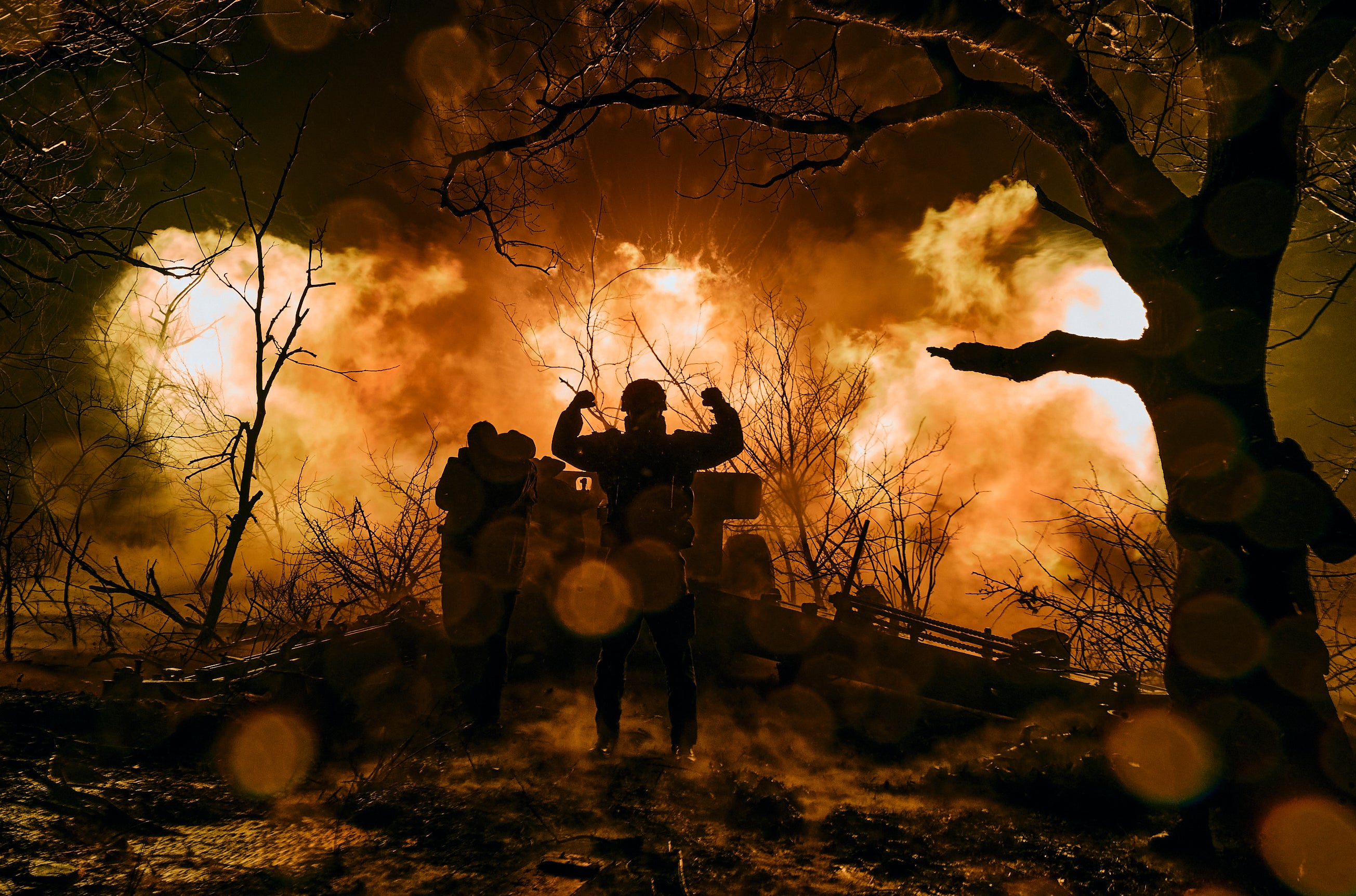
“Of course, we have made enemies,” he says. “People cannot imagine what went on in the front, you had to fight to stay alive. The Ukrainians came at us wave after wave. Prigozhin used to say, ‘They have the same iron balls as us’, and he was right, they are tough.
“When we were fighting we hardly got any sleep, there was danger everywhere. Someone you could be talking to could be shot 10 minutes later. You try to help, but the then you may have to move and you leave them lying there in pain, begging for help.
“We saw some of the young soldiers rolling the dead into lorries to be taken away. The thing is, some of the dead weren’t dead, they had been very badly wounded. We stopped that when we noticed what was happening. But I am sure there were times the wounded were buried with the dead. Can you imagine ending like that?”
In this world of flames and fury, panic and confusion, self-preservation was the all-consuming aim. “Our daily routine was fight, eat when you could, pray and try not to get killed,” says Sergey.
“I have had injuries, one was serious, shrapnel from a mortar round tore up my leg and thigh. I had two operations lasting hours. I felt maybe it was only a matter of time before my luck ran out. Everyone faces the same reality, and I chose to take a break.”
While he has fought on behalf of the Kremlin in Syria and Ukraine, Sergey insists he hasn’t played any part in atrocities that would bring him in front of a Ukrainian or international court as a defendant.
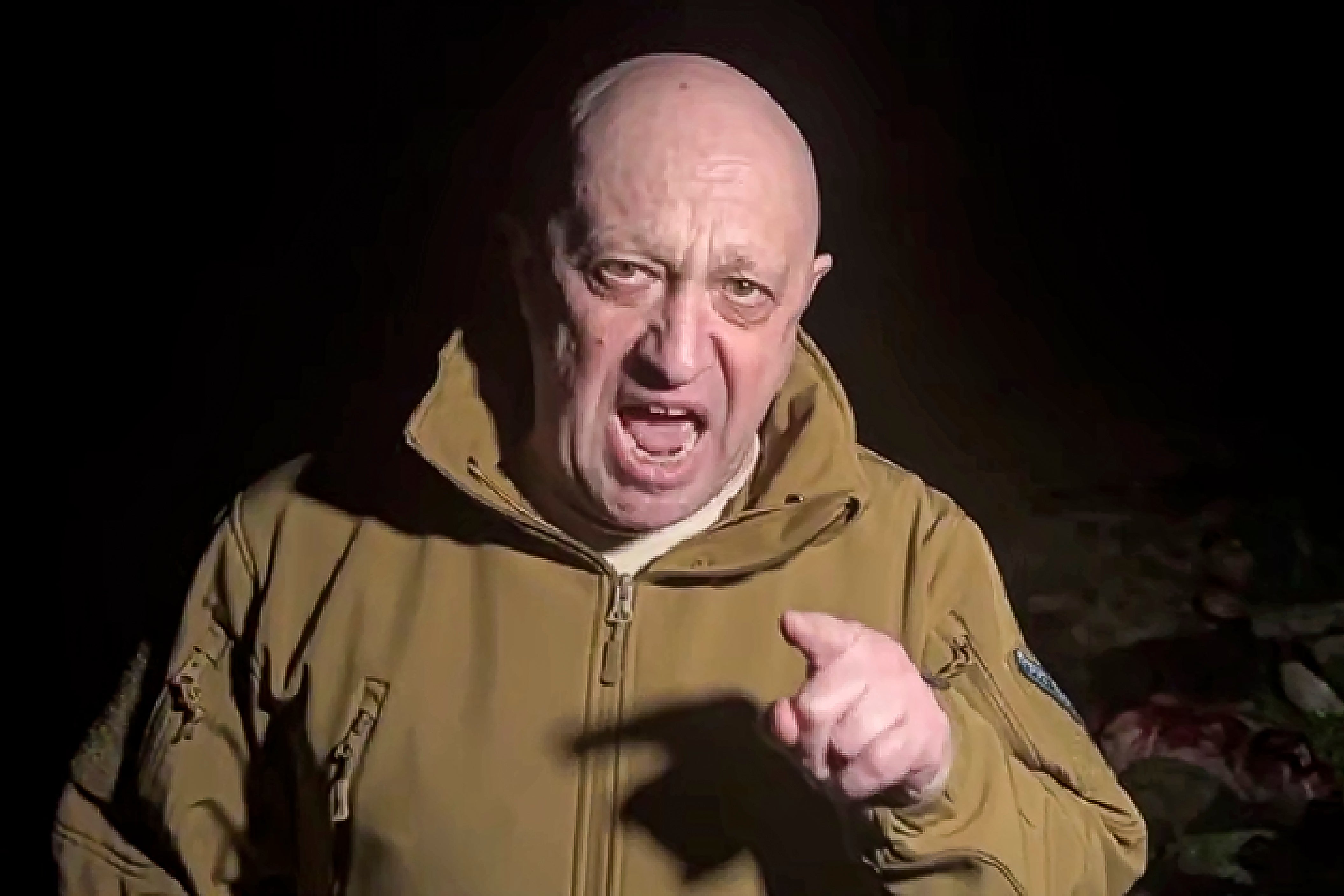
Investigators have been gathering evidence of murder, torture and rape by Russian forces in occupied areas. Would he be prepared to appear in court as a witness? “Some very bad things happened there,” Sergey says. “I have seen bad things. It was not just one side – the Ukrainians shot prisoners. But there were acts against [Ukrainian] civilians that shouldn’t have happened, it’s been a dirty war…” His words trail away, he shakes his head, refusing to commit himself.
Some of what Sergey says is undoubtedly self-serving. His account of leaving Wagner is contradictory in places. It is not possible to ascertain whether or not he harmed civilians. He is nervous about going into detail about his personal life and did not want the location of where his two children live with his estranged wife in Russia made public.
Looking out onto the busy street, Sergey reflects: “It is strange, isn’t it? Sitting here, seeing all these people, families, children going about their lives, and then remembering things we have seen, done. I remember going to Ukraine before all the troubles started – it was normal, nice, we all got on. It is a pity what has happened.”
Sergey knows Ukraine. Wagner fighters like him played their part in the descent into the “troubles” he mentions.
After being discharged from the army having sustained injuries in an exercise, he joined Wagner nine years ago and took part in the separatist war in the east of the country which followed the revolution overthrowing the pro-Moscow president Viktor Yanukovych, and the subsequent Russian annexation of Crimea.
“We were told that the Americans, the British, [and] Nato had carried out a coup against Yanukovych, the elected president. We were there to save our people in Ukraine, and also to protect Russia’s borders. That’s what we were told and that’s what we believed,” Sergey says.
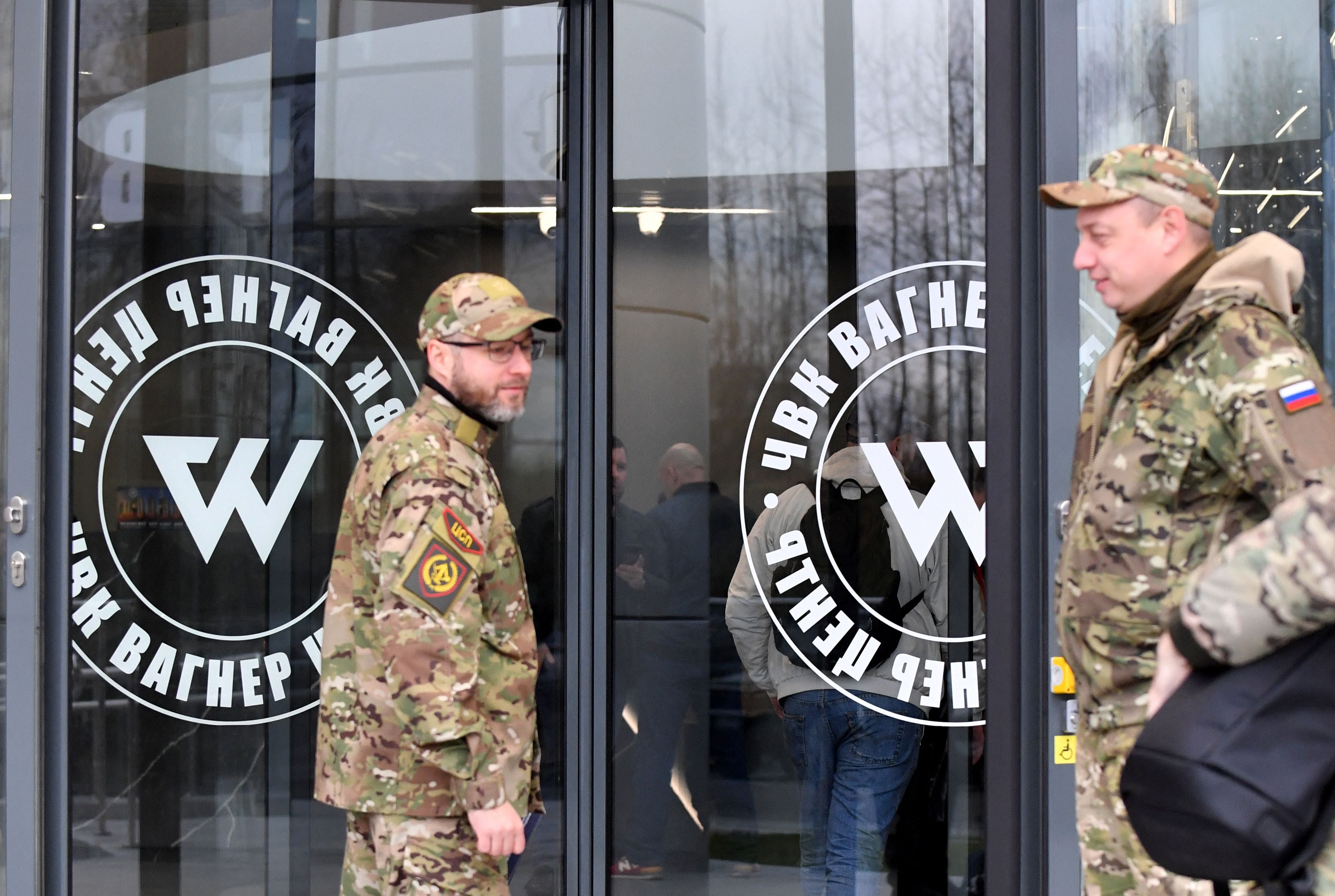
“We all know what happened this time. We were meant to be welcomed by the Ukrainians, especially the Russian speakers who were being oppressed. This was meant to be a short war, after which we’ll hold parades and then go home. It has been badly handled, people realise that. It’s now just a big mess, all f****d up.”
Sergey despairs of the way standards have dropped in the Wagner group and the penal contingents who have been brought in as casualties have mounted.
“When I first joined the company, military experience was a requirement,” he says. “There were strict controls: they checked your background, you had to even take a polygraph test. There was a small number who may have been to prison but most of them had been in the military before getting into trouble for things like drunken fights. We were active, we were professional, not just mobics [newly mobilised] and the idiots from jails we have now.
“The prisoners who’ve now been recruited have been told, ‘Do six months on the front line and you’ll be free and we’ll give you an advance of 250,000 roubles [£2,135].’ So that’s what they do, just try and not get shot for six months. Why should they want to be heroes? Some of them are crazies who should never have been given guns. Many may be [convicted] killers, but very few of them will make soldiers.”
Despite these handicaps, Wagner had taken Bakhmut, Sergey wants to point out. But Prigozhin became enmeshed in a vitriolic dispute with the military hierarchy in Moscow, especially the defence minister, Sergei Shoigu, and General Valery Gerasimov, the commander in Ukraine, accusing them of sabotaging Wagner operations.
Tensions rose, insults were traded, conditions were created for a perfect storm, speculation mounted, and there was a feeling that something “big” was going down.
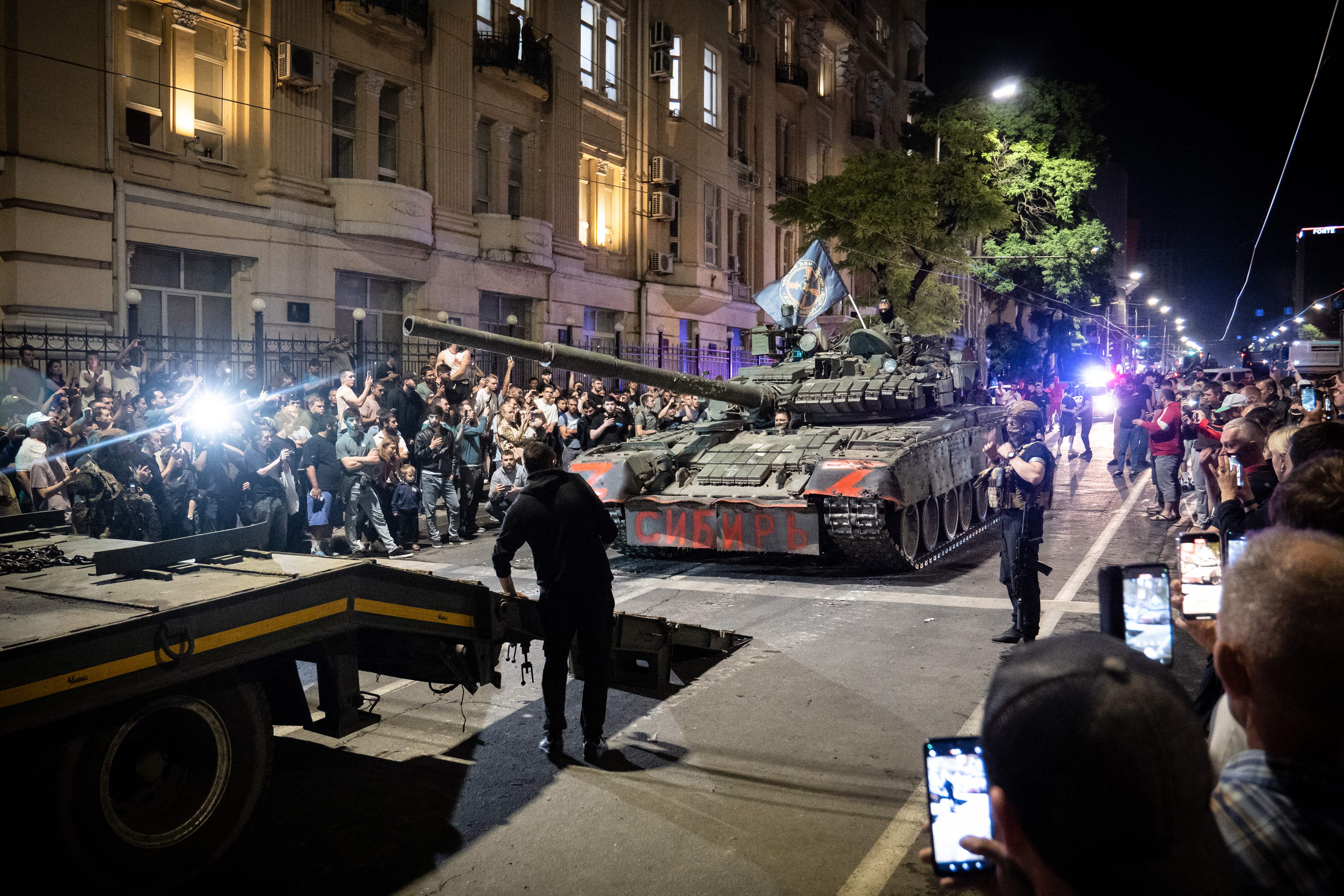
Then came Prigozhin’s mutiny, a stunning twist in this extraordinary conflict. The aftermath saw Putin clinging on to power, but with his hold more fragile than ever before, and disquiet about what lies in the future.
“There were rumours of course, all armies love rumours. But only those at the top knew what had been planned. Prigozhin and very few others know the real story,” says Sergey. “There are people high up in government who must have known what was going on. This will come out at some time. Prigozhin, we think, is too powerful for now, but the others, some of them will pay a big price.”
Sergey insists that he had left the mercenary group before the attempted coup took place, with his contract coming to an end. He says he had no foreknowledge of the rebellion and is not wanted by the Russian government or Wagner.
As part of the deal between Prigozhin and the Kremlin that ended the rebellion, brokered by Belarus president Aleksander Lukashenko, Wagner had to leave Ukraine and rebase in Belarus. Those who left the group were given the choice of joining the army or going home.
Prigozhin, however, appears to be moving around freely. On Thursday he attended the Russia-Africa Forum in St Petersburg. Wagner’s highly lucrative operations in Africa have continued, and it appears to be business as usual with the Kremlin’s blessing.
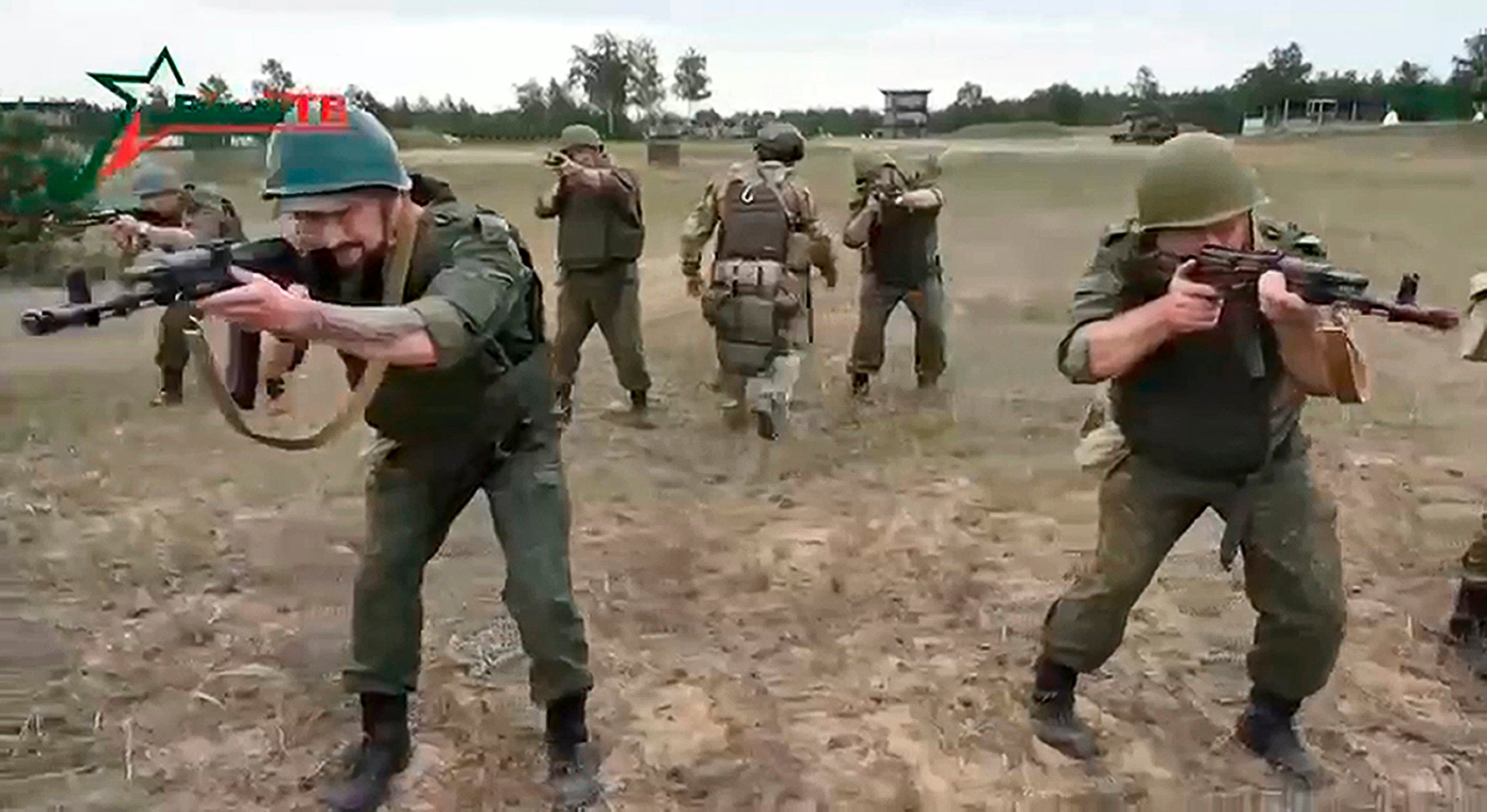
Sergey says: “There are all kinds of questions about what can happen next with Wagner. Will they be used to attack Ukraine? The Ukrainians will be well prepared this time. There is even talk they would attack Poland. Does Lukashenko really want a direct war with a Nato country? These are questions beyond me as just a soldier, but, anyway, I won’t be involved.”
Sergey decided not to go to Belarus, and neither is he prepared to return to the Middle East for Wagner or join the operations in Africa – options, he claims, the Russian government is encouraging some fighters to take up.
“Putin does not want thousands of our soldiers staying in Russia and out of Ukraine. Wagner will be missed in Ukraine,” he says. “Already some of the positions we took around Bakhmut are being taken back by the Ukrainians. We heard they took Klischiivka. Andriivka could be next. A lot of lives were lost to capture those places. But we also fought with discipline, and tactically we were flexible and could move without air support. We were better in that than the Russian army or the Ukrainians.”
Those who serve in Belarus or Wagner operations abroad may end up signing contracts, he believes, with the Concord group, Prigozhin’s management company. “This company has already been registered in Belarus, we know,” Sergey claims.
“The ordinary soldiers who took part in the operation [mutiny] did not really know what was happening. Some of them only realised they were going to Russia after they had been ordered by their officers. It was not something which had been rehearsed,” he adds.
“Prigozhin complains that the war went badly for Russia because the troops were sent to Ukraine without clear orders and direction. But perhaps that’s the mistake he made going to Moscow.”
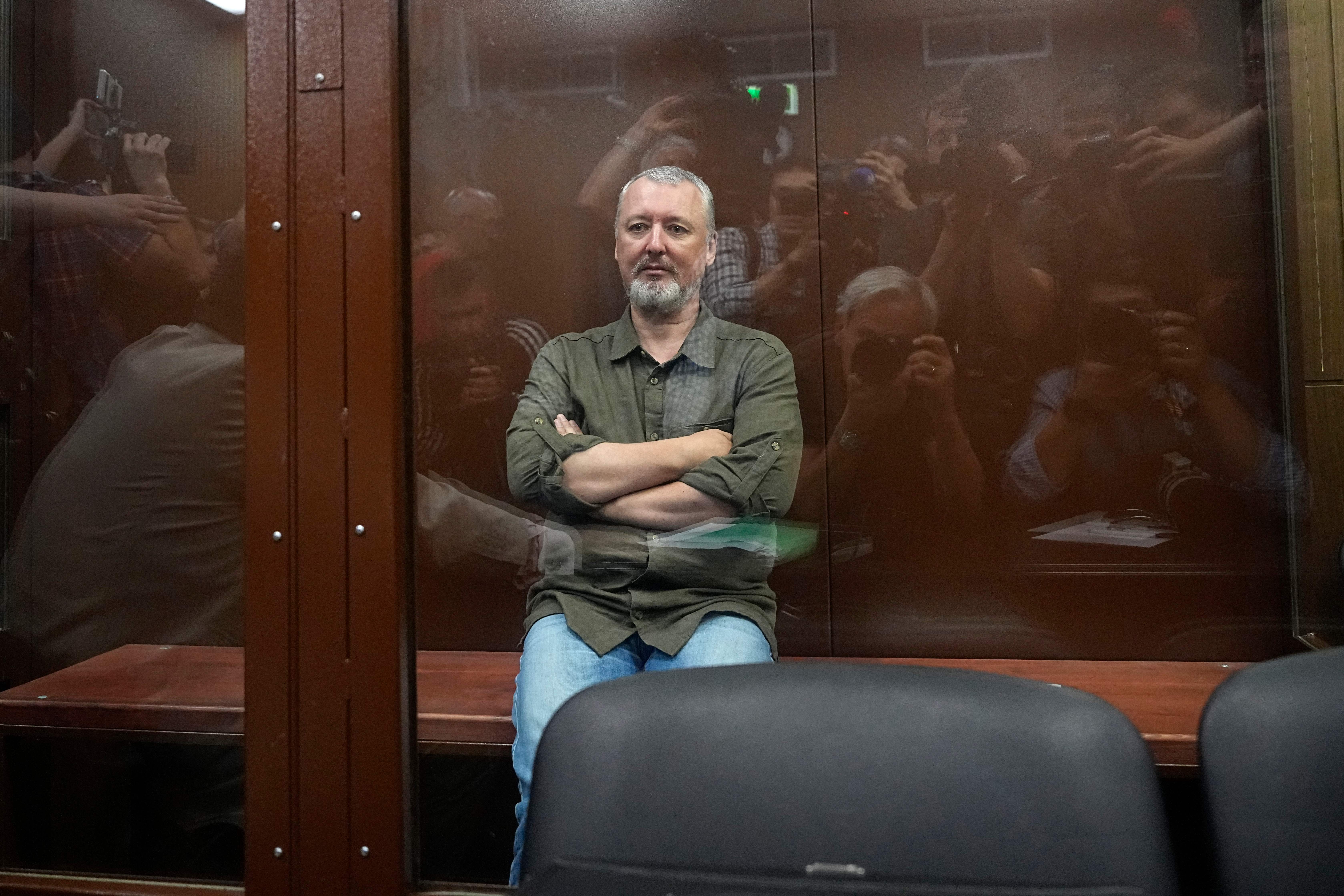
Life with Wagner is complex: betrayals. in-fighting, mutinous words against Putin – this is a knife-edge existence.
During the 2014 campaign in eastern Ukraine, Sergey met Igor Girkin, who had the nom de guerre of Strelkov, a former Russian army and FSB officer, who led one of the infiltration teams and, for a time, became the defence minister of the “Donetsk People’s Republic”.
Girkin was dismissed from his position in 2014 after a Malaysian Airlines plane was shot down, killing 298 people. Prosecutors in the Netherlands, where the flight had originated, indicted him and three others for murder. They were handed sentences of life imprisonment in absentia late last year.
Girkin backed the current invasion of Ukraine, but like Prigozhin – and the Chechen warlord Ramzan Kadyrov – became a fierce critic of the Kremlin over the way the war is being conducted.
Girkin also began to attack Putin personally. Last week he called for the president’s removal, saying Russia “could not survive another six years” of his rule. He was arrested by the FSB a few days later and charged with “extremism” and has appeared in a Moscow court.
Sergey points to Girkin as an example of the purge taking place after the failed coup. “I didn’t know him well but of course we all remember him,” he says. “He was a big man then. But what has happened now shows how someone’s fortune can change in wars – no one can be sure of anything at the moment.”
Join our commenting forum
Join thought-provoking conversations, follow other Independent readers and see their replies
Comments
Bookmark popover
Removed from bookmarks